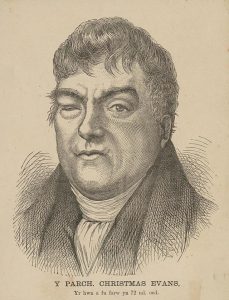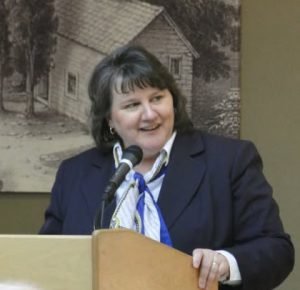
The great Welsh preacher, Christmas Evans (named “Christmas” because he was born on Christmas Day, 1766), was famous for saying: “I’d rather burn out than rust out in the service of the Lord.” The sentiment is clear: keep doing anything so you do not become stagnant and rust; it is perfectly ok to do too much and become burnt out. It sounds bold and shows deep dedication to the Lord Jesus but when we see those who are lying in the ecclesiastical road, we learn better.
Burnout is A Reality
Pastor burnout is a real thing. A Barna survey taken in 2015 and then again in 2022 indicated a 20 percent drop in pastor satisfaction with their own performance and fulfillment in the role. Barna researchers conclude that there is a 400 percent increase in the risks associated with pastor burnout for those they interviewed.[1]
Good nutrition and physical exercise can overcome the physical burnout. But, sometimes, we don’t even realize we are in burnout, because it comes on gradually and we attribute many of the symptoms to other sources. Headaches, fatigue, digestive issues, depression, anxiety, cognitive “fuzziness,” withdrawal, anger—there are many symptoms that, taken separately, could be explained away as being caused by other factors.
“Walking Away” From Vocation Does Not Fix Burnout
Burnout leads to walking away. Pastors have decided that they will quit the “profession,” saying they feel disrespected, unsupported by colleagues or by their congregations, and degraded by experiences within the church. They conclude that they can leave one church and go to the next in the same state of discontent. They conclude that they can leave the “job” completely.
And therein lies the problem.
Burnout will continue until pastors begin to consider self-care as a holistic concept that weaves together the five natures of our life. We are created by God, integrated in our humanity by emotional, social, intellectual, physical, and spiritual natures. We experience burnout when these five areas are not balanced. Unfortunately, the spiritual area—the sense of calling and vocation—is often what is most lacking when burnout occurs. The uncertainty and dissatisfaction pastors feel in their “jobs” come from not being connected to the Source and Power of our calling.
Burned-Out Persons Need Spiritual Reconnection, Not Working Harder
Being a pastor is the ongoing yielding to the call God has placed on our lives, personally and with the authority of Christ to help lead His mission in the world. We cannot simply “walk away” from a church, a situation, or our calling, even as we cannot “walk away” from God.
 When I receive an e-mail or a phone call from a colleague who is stressed and wanting to quit, I ask the question: “What is your relationship with the Lord right now? How are you connecting to our Source, Power, and Love?” Usually, the answer is in the negative: “I’m not.” My next question is: “So, what are you doing?” The given answers usually range within the “doing anything” that Christmas Evans purports, instead of the slow, steady, daily, almost hourly seeking of Christ that is essential to “doing” the mission of Christ. We are to find our hope in Christ alone, rejoicing in the sure and certain knowledge that God is making all things new—including each of us. We live in the present on the strength of that promised newness, pointing beyond our own foibles, challenges, and difficulties to the good news of God’s transforming grace in Jesus Christ. If we cannot do that for ourselves, we cannot lead others. Thus, we burn out and burn up.
When I receive an e-mail or a phone call from a colleague who is stressed and wanting to quit, I ask the question: “What is your relationship with the Lord right now? How are you connecting to our Source, Power, and Love?” Usually, the answer is in the negative: “I’m not.” My next question is: “So, what are you doing?” The given answers usually range within the “doing anything” that Christmas Evans purports, instead of the slow, steady, daily, almost hourly seeking of Christ that is essential to “doing” the mission of Christ. We are to find our hope in Christ alone, rejoicing in the sure and certain knowledge that God is making all things new—including each of us. We live in the present on the strength of that promised newness, pointing beyond our own foibles, challenges, and difficulties to the good news of God’s transforming grace in Jesus Christ. If we cannot do that for ourselves, we cannot lead others. Thus, we burn out and burn up.
Paul states in Acts 20:24, “I consider my life worth nothing to me, if only I may finish the race and complete the task the Lord Jesus has given me.” Choose for yourself to model Paul: neither to burn out nor rust out. Look to finishing the race.
[1] https://www.wnccumc.org/resourcedetail/5-shocking-realities-about-the-real-state-of-pastor-burnout-17392915 accessed April 12, 2025.
 The Rev. Dr. Brenda Barnes ’07/’18 is pastor of New Hope Presbyterian Church (North Huntingdon, Pa.). After her ordination in Kiski Presbytery, Rev. Barnes served as a temporary supply pastor until she was called to serve as a transitional minister and a congregation coach for several churches across four presbyteries. She holds a master of divinity and a doctor of ministry (Reformed focus) from Pittsburgh Theological Seminary.
The Rev. Dr. Brenda Barnes ’07/’18 is pastor of New Hope Presbyterian Church (North Huntingdon, Pa.). After her ordination in Kiski Presbytery, Rev. Barnes served as a temporary supply pastor until she was called to serve as a transitional minister and a congregation coach for several churches across four presbyteries. She holds a master of divinity and a doctor of ministry (Reformed focus) from Pittsburgh Theological Seminary.
Read Next






1 thought on “Pastor Burnout”